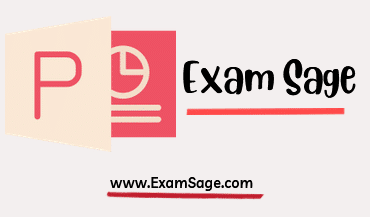Poverty and Flourishing
Introduction
Poverty remains one of the most pressing issues facing humanity. Governments, organizations, and individuals have devoted significant resources to alleviating poverty, yet the problem persists. This raises critical questions: “What kind of economic system will best ensure human flourishing?” and “What is economically wrong with the way we currently battle issues of poverty?” A proper evaluation of these questions requires an understanding of economic principles, historical evidence, and biblical teachings—particularly the doctrines of sin and humanity.
Economic Systems and Human Flourishing
The best economic system for ensuring human flourishing is one that promotes economic freedom, personal responsibility, and opportunities for wealth creation. Among the various economic models, free-market capitalism stands out as the most effective system for reducing poverty and fostering prosperity. Historically, nations that have embraced free markets, property rights, and limited government intervention have experienced exponential economic growth and improved living standards (Friedman, 2002).
In a free-market system, individuals have the autonomy to make economic choices, pursue entrepreneurial ventures, and engage in voluntary exchange. This fosters innovation, competition, and efficiency, leading to job creation and wealth distribution. The principle of supply and demand allows resources to be allocated where they are most needed, reducing inefficiencies and maximizing productivity (Smith, 1776).
From a biblical perspective, economic freedom aligns with the doctrine of humanity. The Bible teaches that human beings are created in the image of God (Genesis 1:27) and are endowed with creativity, rationality, and stewardship responsibilities. An economic system that acknowledges and nurtures these God-given attributes enables individuals to flourish and exercise their God-given potential.
The Problems with Current Poverty Alleviation Efforts
Despite significant efforts to combat poverty, many modern approaches fall short due to systemic inefficiencies and misplaced incentives. Government-led welfare programs, for instance, often create dependency rather than empowerment. Instead of equipping individuals with skills and opportunities to improve their economic conditions, many programs inadvertently discourage self-sufficiency (Murray, 1984).
One major flaw in current poverty alleviation efforts is the over-reliance on redistributionist policies. High taxation and wealth redistribution can stifle economic growth, deter investment, and reduce the incentives for wealth creation (Gwartney et al., 2021). This approach focuses on short-term relief rather than long-term solutions, failing to address the root causes of poverty.
Additionally, foreign aid and charitable efforts often fall into the trap of providing temporary assistance without fostering sustainable economic development. Instead of promoting entrepreneurship, education, and market access, many aid programs create a cycle of dependency where communities rely on continuous external support (Easterly, 2006).
From a biblical standpoint, the doctrine of sin helps explain why certain poverty alleviation strategies fail. Sin manifests in human nature through selfishness, corruption, and injustice, leading to ineffective and sometimes exploitative policies. Proverbs 22:7 states, “The rich rule over the poor, and the borrower is servant to the lender.” When government policies or well-intended charity efforts do not align with biblical principles of stewardship and personal responsibility, they often exacerbate the problem rather than solving it.
A Biblical Approach to Poverty Alleviation
A more effective approach to poverty alleviation should integrate economic freedom with biblical principles of justice, stewardship, and generosity. The Bible provides numerous examples of how economic interactions should be conducted with wisdom and fairness. For instance, the gleaning laws in Leviticus 19:9-10 encouraged landowners to leave portions of their harvest for the poor to gather, promoting work and dignity rather than passive dependence.
The parable of the talents (Matthew 25:14-30) also reinforces the importance of productivity, investment, and wise stewardship. Individuals who use their God-given resources effectively are rewarded, whereas those who fail to do so suffer loss. This principle supports the idea that poverty alleviation should focus on equipping individuals with education, opportunities, and the means to participate in a thriving economy.
Another essential biblical teaching is the role of generosity and voluntary charity. 2 Corinthians 9:7 states, “Each of you should give what you have decided in your heart to give, not reluctantly or under compulsion, for God loves a cheerful giver.” Biblical charity emphasizes personal giving rather than forced redistribution, ensuring that assistance is given with genuine love and wisdom.
The Role of Economic Education in Poverty Alleviation
Economic literacy is crucial in breaking the cycle of poverty. Equipping individuals with financial knowledge, entrepreneurship skills, and an understanding of market dynamics can empower them to escape poverty permanently. Encouraging education in political economy, economic freedom, and ethical business practices is essential.
For students and professionals interested in deepening their understanding of economic principles and their impact on freedom and prosperity, resources such as the Political Economy of Freedom Practice Quiz available here can provide valuable insights. By improving economic literacy, individuals can make informed decisions that lead to financial stability and long-term success.
Conclusion
In answering the questions, “What kind of economic system will best ensure human flourishing?” and “What is economically wrong with the way we currently battle issues of poverty?” it becomes clear that economic freedom, personal responsibility, and biblical stewardship principles provide the best framework for alleviating poverty. Free-market capitalism, when guided by moral and ethical considerations, fosters innovation, wealth creation, and self-sufficiency. Current poverty alleviation efforts often fail due to dependency-creating policies and misaligned incentives. A biblical approach to economics, emphasizing stewardship, generosity, and personal responsibility, offers a more sustainable and empowering solution. By embracing these principles and fostering economic education, societies can move toward genuine human flourishing and poverty reduction.
References
- Easterly, W. (2006). The White Man’s Burden: Why the West’s Efforts to Aid the Rest Have Done So Much Ill and So Little Good. Penguin.
- Friedman, M. (2002). Capitalism and Freedom. University of Chicago Press.
- Gwartney, J., Stroup, R., Sobel, R., & Macpherson, D. (2021). Economics: Private and Public Choice. Cengage Learning.
- Murray, C. (1984). Losing Ground: American Social Policy, 1950-1980. Basic Books.
- Smith, A. (1776). The Wealth of Nations. W. Strahan and T. Cadell.

